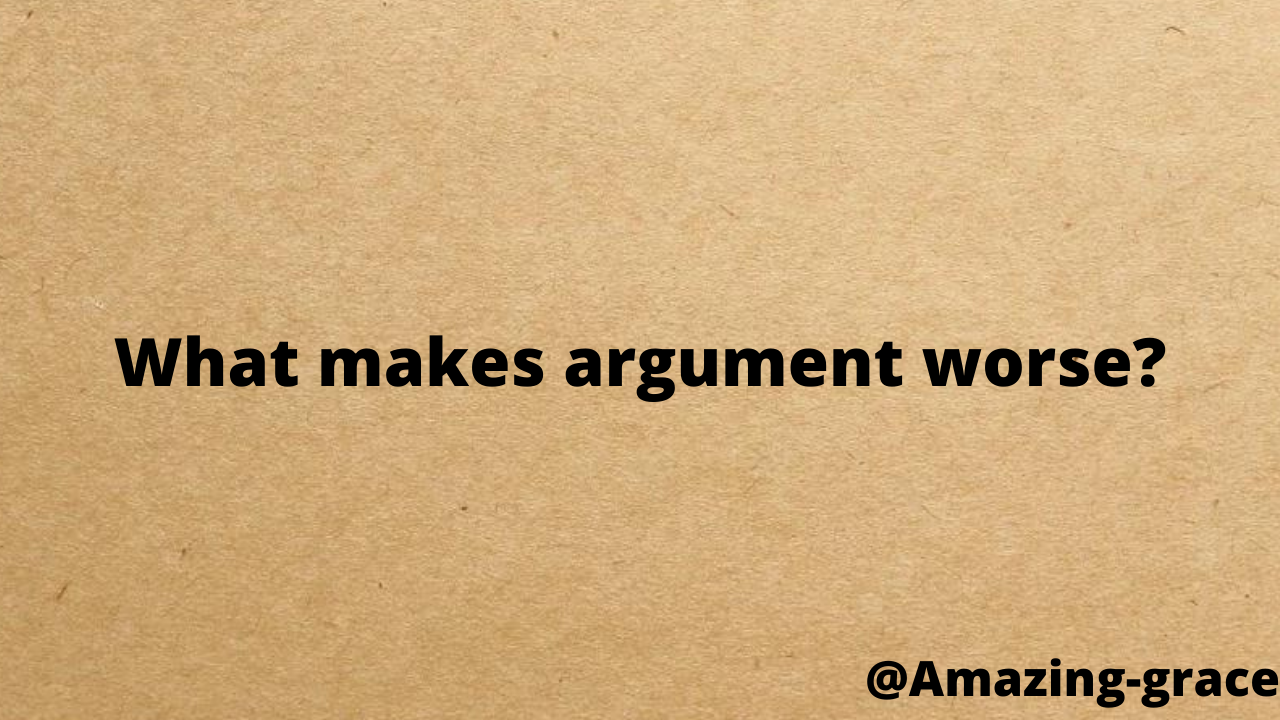What makes argument worse?

Disagreements occur when two parties disagree on a topic; most arguments are the result of minor misunderstandings between two persons.
Let's take a look at what can make argument worse;
Using the other person's past against them.
Using generalized words e.g always,never.
Using silent treatment or guilt tripping.
Focusing on unrelated issues and comparing.
Using the person's insecurities against them.
1.Using the other person's past against them; When two individuals have a minor misunderstanding, they frequently use each other's past against one other, which is not appropriate; such friendships will lose trust if you both bring up your past to settle a quarrel.
2.Using generalized words e.g Always,never; These two words (always,never) have a lot of power. As we all know, the words we speak have a lot of power, so we need to be careful what we say during misunderstandings and in life in general.
3.Using silent treatment or guilt tripping; For those unfamiliar with the term "guilt tripping," it simply refers to the act of making others feel guilty without accepting responsibility for any mistakes you've made.
4.Focusing on unrelated issues and comparing; Most times during any argument the two parties focus's on unrelated issues which makes arguments grow worse and can't be handled amicably.
5.Using the person's insecurities against them; During a disagreement, one party may want to use the other's insecurity, which is similar to exploiting someone's weakness. During a battle, which would exacerbate the conflict.
Let's look at how to conduct a courteous argument now that we've looked at what might make disputes worse.
Listen to the other person without interrupting.
Seek to understand and solve,not win or be right.
Validate the person feelings and viewpoints.
Keep your focus on the subject at hand and employ the I statement.
1.Listen to the other person without interrupting; During a dispute, we should strive to listen to each other's appeals as much as possible without interrupting each other; there should be space for each other to speak so that the situation can be resolved amicably.
2.Seek to understand and solve,not win or be right; We must endeavor to understand and resolve misunderstandings inside ourselves in order to resolve them in a courteous manner; we must not strive to win in any dispute, but rather to understand each other and recognize the errors that lead to the misunderstanding.
3.Validate the person feelings and viewpoints; Examine each other's perspectives and feelings in order to have a calm and amicable disagreement.
4.Keep your focus on the subject at hand and employ the I statement;In any argument, we should aim to keep our attention on the issues that lead to the disagreement between the two sides and also use the "I" statement to maintain a courteous tone.
In conclusion.
We should not attempt to win in any disagreement, but rather to identify the flaws that led to the misunderstanding and correct them. Disputes can be resolved amicably if we listen to each other's mistakes and give each other the opportunity to express ourselves.
Meet my sponsors ❤️.
Thanks for taking your time to read this piece, I appreciate your kind gestures towards me and would try to reciprocate what y'all have done, thanks for coming by and have a wonderful week ahead.🥰❤️
Well written. All of the points are very important.